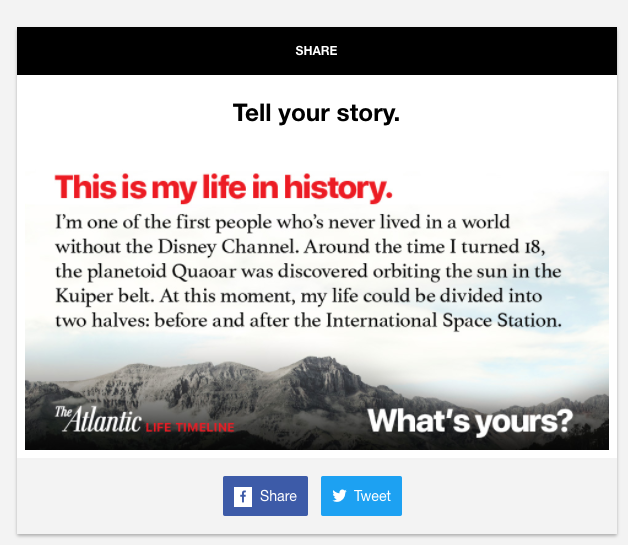The Atlantic is 160 years old this year, which has gotten it thinking about ways it can tap its archives. On Monday it launched “The Atlantic Life Timeline,” a feature that lets readers see their lives in the context of events the magazine has covered. You enter your birthdate and receive a list of 10 to 13 “milestone events,” each corresponding to an Atlantic article and relating to a theme like “Before You Were Born” and “Teenage Years.”
You also get an image that you can share on social media. Here’s mine; I was born in 1984. (9/11, which took place when I was 17, was surely a more pivotal moment than the discovery of a planetoid when I was 18; the timeline does note, “At 17 years old, you were part of the generation most shaped by 9/11.”)

The project, which took several months, involved staff digging through the Atlantic archives to find key defining milestones and factoids. The team used Mechanical Turk for some fact-checking. The timeline includes Atlantic articles dating back to 1900 for now, and will expand in the future.
“I’m hoping this spurs further exploration,” said Matt Thompson, the deputy editor of TheAtlantic.com, who led the editorial side on the project. “I’m hoping folks find stories they never knew existed.”
Leave a comment